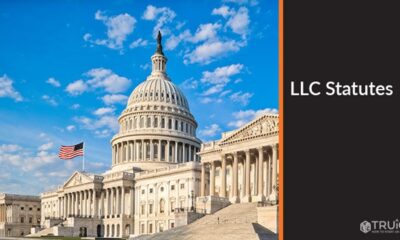Finance
Planning an Out of State Move? Consider the Financials.
According to recent data from the 2021 American Migration Report, the number of U.S. residents who plan to move this year has increased more than 20 percent. There are many reasons for this—from the need to leave a state with high COVID rates, to the location freedom that remote work provides. But if an out of state move is on the horizon for you, be sure to consider the financials before you start packing.
Whether it’s across the country or just a couple states over, the costs of moving can escalate quickly. You’ll need to factor in expenses both during the move itself and once you arrive at the destination which will be your new home. So, on that note, here’s a rundown of the costs to be aware of, so you can formulate a budget and plan ahead for success in this next chapter of life. When it comes to moving, preparation makes all the difference.
Cost of Living
Depending on where you move in the U.S., the cost of living could be more expensive than what you’re used to. The national median for the cost of rent in a two-bedroom apartment is currently $1,192 per month, the World Population Review indicates, but this rough estimate will vary from one state to the next. For instance, regions such as the West and Northeast tend to be higher than the South and Midwest. When choosing a state to call home, take into account the price of housing, utilities and other basics that you need to live.
Transportation
This next line on the budget is twofold—calculate how much it costs to transport your household items during the move, as well as the costs of commute in the area you’re relocating to. You can hire a professional mover to pack, haul and deliver your boxes to their destination, or rent a moving truck and do the transportation yourself. But whichever option you choose, the price is based on mileage, so calculate the trip distance, then be ready to earmark at least a couple thousand dollars. You also need to think about the cost of a driver’s license, vehicle tags, car maintenance, fuel and public transit in your new zip code.
Employment
If you plan to move without securing a job first, consider how much you’ll need to earn when looking for employment. Research the baseline salary or minimum wage for your career level and industry in the state you’re moving to, then determine if this amount is enough to live on. For example, the minimum wage in California is $14 per hour—$2 more than the national average—but the cost of living is also 43 percent higher than in most other states, reports Payscale. As such, crunch the numbers to guide your job search.
Healthcare
Health insurance costs fluctuate based on where you move as well, and there are numerous factors to be aware of that can influence monthly premiums. If your job doesn’t offer medical benefits, then you’ll have to purchase health insurance in the ACA Marketplace, and as of 2021, the average premium for a benchmark plan is $452. However, the cost could increase to nearly $800 in states like Wyoming or fall below $350 in states like Colorado. Your age bracket can also affect health insurance costs, so if you are 30 or older, plan on a higher premium in most states (with notable exceptions of New York and Vermont).
Taxation Rate
Once you establish permanent residence in another state, it’s crucial to familiarize yourself with the tax laws there. If you move at the end of 2021, expect to file in your former state of residence for the upcoming tax season. But in the meantime, research the income, state and property tax rate in your new home, so it doesn’t come as a shock the next year. In some cases, moving expenses can be written off a tax return, and if you’re not sure where to relocate, consider one of these states that doesn’t charge income tax:
- Florida
- Texas
- Nevada
- Washington
- North Dakota
- Wyoming
- Alaska
Moving Is Expensive, So Plan Ahead for Financial Success.
As with most major life transitions, moving out of state will cost a substantial amount of money, but it’s still quite doable when you plan and save in advance. There are many financial considerations to budget for, and it could take a while for your savings to recoup afterwards. However, if you want a fresh start and change in scenery, with solid preparation and smart money management, an out of state move is within reach.
-

 Press Release6 days ago
Press Release6 days agoClinical Trials Market Set for Robust Growth, Driven by Drug Development Surge and Digital Innovation
-

 Press Release7 days ago
Press Release7 days agoIndustrial Boiler Market Expected to Surpass USD 24.4 Billion by 2035 Amid Growing Demand for Energy Efficiency and Industrialization
-

 Press Release7 days ago
Press Release7 days agoGreen Bio Chemicals Market Poised for Sustainable Growth amidst Global Shift to Eco-Friendly Alternatives by 2035
-

 Press Release7 days ago
Press Release7 days agoFill-Finish Pharmaceutical Contract Manufacturing Market Expected to Flourish Amid Biopharmaceutical Boom and Global Outsourcing Trend by 2035
-

 Press Release7 days ago
Press Release7 days agoPreventive Vaccines Market to Witness Strong Growth by 2035
-

 Press Release7 days ago
Press Release7 days agoPet Food Nutraceutical Market Set for Robust Expansion Amid Rising Demand for Pet Wellness by 2035
-

 Press Release6 days ago
Press Release6 days agoPediatric Vaccines Market: Safeguarding Futures, Driving Growth
-

 Press Release7 days ago
Press Release7 days agoCat Food Market Forecast 2035: Natural Ingredients, Pet Wellness to Lead the Way






























